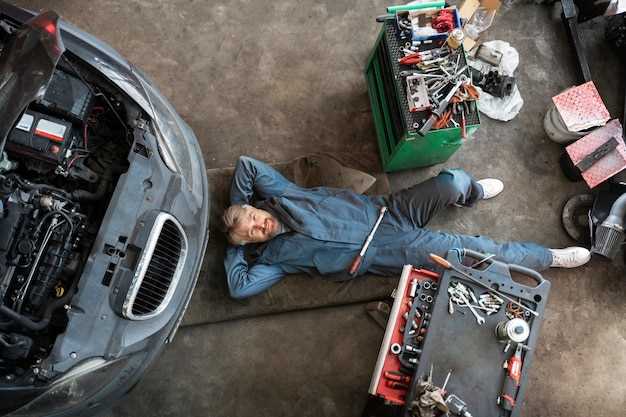
Common engine noises and what they mean

When it comes to maintaining a vehicle, paying attention to engine noises is crucial for early diagnosis of potential problems. Each distinct sound that emanates from the engine has its own significance, serving as an auditory signal of what may be happening under the hood. Recognizing these noises is not just beneficial for car enthusiasts, but essential for any responsible driver.
Common engine noises can range from subtle clicks to loud bangs, each indicating different issues. For instance, a persistent rattling may suggest loose components, while a high-pitched whine could be a sign of problems with the serpentine belt or other accessories. Understanding these sounds can help in determining whether a trip to the mechanic is necessary or if the issue can wait.
This article aims to provide readers with a comprehensive understanding of various engine noises and their meanings. By becoming familiar with these auditory cues, drivers can enhance their awareness of their vehicle’s condition and potentially save on costly repairs by intervening early.
Identifying Clicking Sounds: What They Indicate about Engine Health

Clicking noises from the engine can be alarming and may indicate potential issues that require immediate attention. Understanding the source of these sounds is vital for maintaining engine health.
One common cause of clicking noises is lower oil levels. Insufficient lubrication can lead to increased friction between engine components, resulting in a tapping or clicking sound. Regularly checking and changing the oil can help prevent this issue.
Another possible source is a failing lifter. Hydraulic lifters play a crucial role in maintaining proper valve operation. If a lifter becomes worn or clogged, it can create a distinctive clicking sound. This may also be accompanied by poor engine performance or misfires.
Additionally, a loose or damaged component within the engine, such as a valve or rocker arm, can produce clicking noises. These components may need to be tightened or replaced to restore proper functionality and prevent further damage.
It’s also important to consider the possibility of a failing timing chain or belt. If these components become stretched or worn, they can result in clicking or rattling sounds. Regular inspections can help identify these problems before they escalate into significant engine damage.
In summary, clicking sounds in your engine should never be ignored. Whether it’s low oil levels, failing lifters, loose components, or issues with the timing mechanism, addressing these noises promptly can help ensure the longevity and reliability of your vehicle’s engine.
Diagnosing Grinding Noises: Causes and Solutions for Your Engine

Grinding noises from your engine can indicate various issues that require immediate attention. Proper diagnosis is crucial to prevent further damage and ensure the longevity of your vehicle.
Here are some common causes of grinding noises:
- Worn Bearings: Engine bearings wear out over time, leading to metal-to-metal contact that creates grinding sounds.
- Faulty Timing Chain or Belt: A loose or damaged timing chain or belt can produce grinding or rattling noises as it fails to maintain proper tension.
- Piston Slap: When pistons are not fitting correctly, they may hit against the cylinder wall, causing a grinding sound during operation.
- Low Oil Levels: Insufficient lubrication can lead to increased friction and noise as moving parts grind against each other.
- Transmission Issues: A failing transmission can also generate grinding noises, often indicating that gears are not engaging smoothly.
To effectively diagnose these grinding noises, consider the following steps:
- Listen Carefully: Pay attention to when the noise occurs–during acceleration, idling, or while turning.
- Check Oil Levels: Ensure the engine oil is at the correct level and in good condition. Low or dirty oil can lead to grinding sounds.
- Inspect Components: Examine belts, pulleys, and other accessible engine parts for signs of wear or damage.
- Consult a Professional: If the source of the noise remains unclear, seeking the expertise of a mechanic is advisable.
Addressing grinding noises promptly can save you from costly repairs and ensure your engine operates smoothly. Regular maintenance and attentive listening can help catch potential issues before they escalate.
Understanding Hissing and Popping Sounds: Are They a Cause for Concern?
Hissing and popping noises from your engine can signal various underlying issues that warrant immediate attention. These peculiar sounds may arise from several sources within the engine compartment, making accurate diagnosis crucial for maintaining vehicle health.
Hissing noises often indicate a leak in the vacuum system or intake manifold. Such leaks can disrupt the air-fuel mixture, leading to inefficient combustion and decreased performance. If you notice a hissing sound alongside a rough idle or check engine light activation, it’s essential to inspect the vacuum lines and intake components.
Popping sounds, on the other hand, are frequently associated with issues in the exhaust system or combustion chamber. A popping noise while accelerating could suggest backfiring, a symptom of air-fuel mixture problems or timing issues. Ignoring these symptoms may lead to more severe engine damage and costly repairs.
It’s important to address any engine noise promptly. Regular maintenance and monitoring can help prevent small issues from escalating into significant problems. If your vehicle begins to emit hissing or popping sounds, seek the diagnosis from a qualified technician to ensure your engine operates smoothly and efficiently.